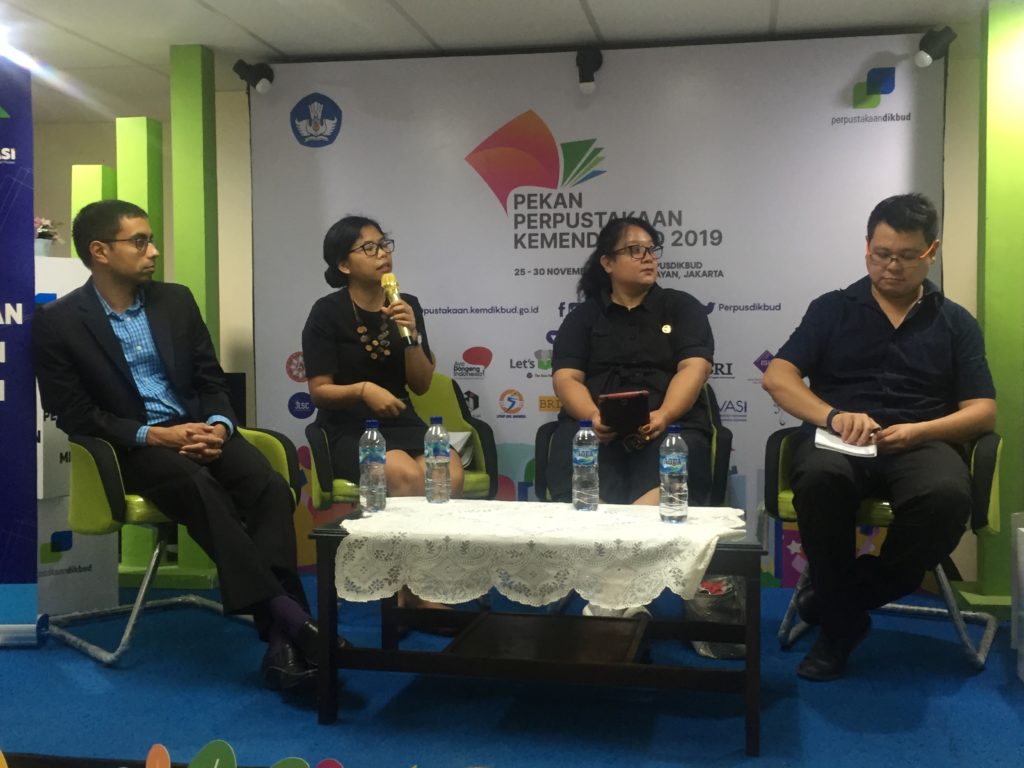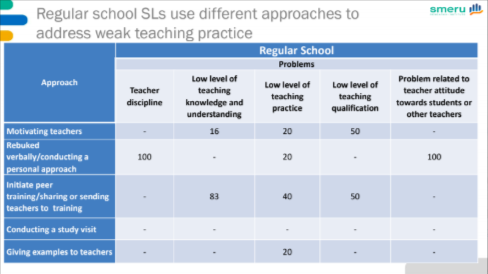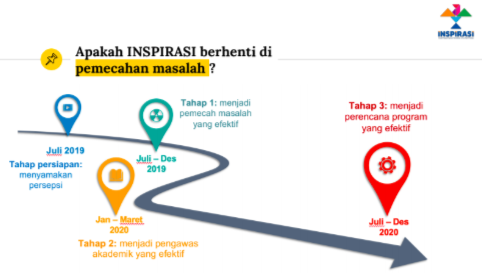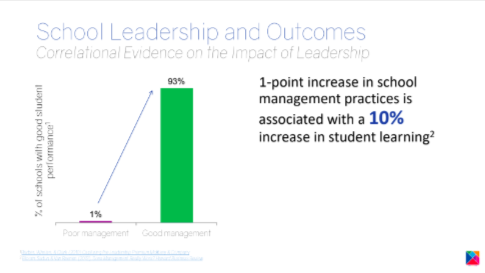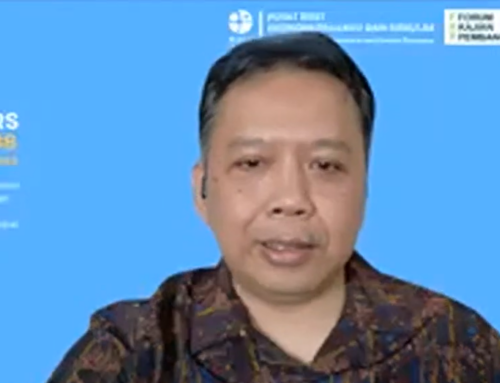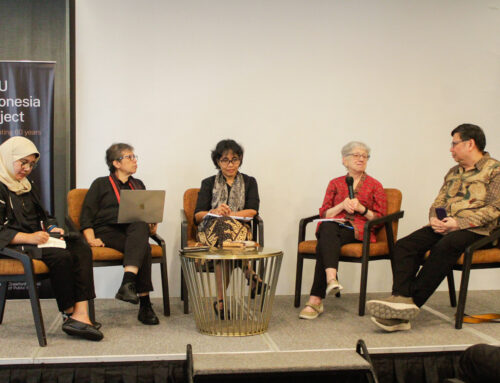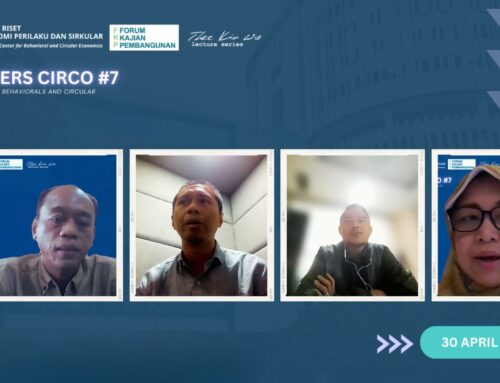School leadership is a factor that influences students’ learning process, yet it is also a topic that is scarcely explored. On Thursday, 5 December 2019 INSPIRASI hosted an FKP seminar on the topic at the Library of the Ministry of Education and Culture. The speakers were Daniel Suryadarma (The SMERU Research Institute), Cici T. Wanita (INSPIRASI Foundation), and Sameer Sampat (Global School Leaders).
Daniel Suryadarma presented the baseline study that he and his team conducted in 25 schools to see the initial conditions of school leadership as well as their corresponding learning process. Among the schools observed, 8 were accredited “A” and 16 were accredited “B”, meaning that based on the standards of The Ministry of Education and Culture and The Ministry of Religious Affairs, these schools are considered well-performing. Most of these schools have also implemented the 2013 curriculum, with few exceptions. Daniel shared that most of the teachers or school leaders (SL, for example a school principal) observed in the study have moderate growth mindset, which refers to the belief that a student’s intelligence can be improved through hard work. However, teachers who have longer experiences tend to have moderate fixed mindset, which sees intelligence as something that is given and unchangeable. In general, this study also found that SLs have not focused on student learning and do not have an accurate understanding of the quality of teachers and the teaching practice that take place at their schools, which leads to a planning that is disconnected from the problems and conditions of their respective schools. Teachers are also found to have limited knowledge and effective teaching practices, which results in the limited learning process of students at school.
Next, Cici T. Wanita explained the subsequent programs that INSPIRASI conducted in the schools where the study was conducted. INSPIRASI focuses on creating change that stems from problems. However, they found that many of the SLs observed are not even aware of the problems in their schools. Based on this finding, INSPIRASI designed an intervention that provided and facilitated references, in-house trainings, discussions, feedbacks, video reflections, and peer-observations for teachers and SLs to solve three main problems: whether the learning process is active, whether the learning environment is conducive, and whether formative assessments are conducted. In the future, INSPIRASI will conduct programs that targets SLs to become an effective program planner.
Lastly, Sameer Sampat shared evidences of the importance of school leadership from around the world. Across the board, countries have been successful in increasing access to schooling, but students are not learning much at school. Learning is important because studies found that it is one of the biggest drivers of socioeconomic outcome gaps in adulthood, especially in lower income countries. A study in the top-performing schools in New York City found that the most defining factors are micro decisions by the SLs, such as how often the SLs observe teachers, how schools give individual attention to students, and whether schools focus on core academic functions. A one-point increase in school management practices is also linked to a 10-percent increase in student learning. In India, Global School Leaders’ intervention resulted in an improvement in school leader performance, teachers planning, and the number of students that scored above average in national exams.
For the complete presentation and Q&A session, please refer to the video and materials provided.
